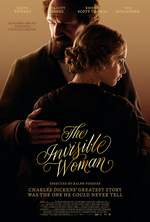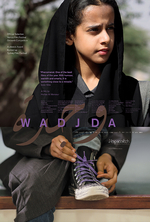Film Screening 11th October, 2014

The Invisible Woman
7:00 PM, 11th October, 2014
- M
- 111 mins
- 2013
- Ralph Fiennes
- Abi Morgan
- Ralph Fiennes, Felicity Jones, Kristin Scott Thomas, Joanna Scanlan
The Invisible Woman is a biographical drama that centres on the infatuation and subsequent love affair between eighteen-year-old actress Nelly Ternan (Jones) and the famous Charles Dickens (Fiennes) at the height of his celebrity.
Nelly is a delicate beauty, her character a mix of passion and stoicism in the light of her tentativeness, and Dickens is a portrait of emotional pain, stuck between his empty marriage and complete enamour for a younger woman. It’s a slow burning film but fuelling the plotline is not only the tension from Dickens’s neglected wife (Scanlan), but also Nelly’s complicit mother (Scott Thomas) and the complexities of love when it blooms in amongst genuine attraction, the lust for applause, and societal morals.
Although it’s only Fiennes’s second attempt at handling the directorial reins, he proves that he is not only able to deliver his on-screen presence with rich yet chilling precision, but is also able to push the boundaries of a conventional period drama by focussing completely on mood, choosing to capture and explore emotional vulnerability in lieu of the typical scandal and drama. As such, its pacing will no doubt frustrate those who come to observe solely a tempestuous affair between established author and alluring teenager, but for those who expect perfectly evoked Dickensian England detailed down to every whisker, muted room lighting and laced up sleeve, the cinematography does not disappoint and neither will the piercing intimacy and intelligence of the film.
Isabelle Lee

Wadjda
9:01 PM, 11th October, 2014
- PG
- 97 mins
- 2012
- Haifaa Al Mansour
- Haifaa Al Mansour
- Waad Mohammed, Reem Abdullah, Abdullrahman Algohani, Ahd
Wadjda is especially remarkable for the conditions under which it was crafted. The film is the first feature film to be shot entirely in Saudi Arabia – a country devoid of movie theatres. It is also the first film there to be directed by a woman, in a society that clings to a religious tradition that all but forbids such a role.
Out of this defiance of tradition comes a story that is remarkably small, personal and simple; yet grand and universal as well. The character of Wadjda is based on Al Mansour’s rebellious niece, as well as her own experiences growing up. The plot mostly consists of Wadjda’s desire to buy a bicycle so that she can race against her neighbour, Abdullah.
To do so she begins a campaign of persistent entrepreneurship, selling hand-woven bracelets to her classmates and delivering love notes for them – for a fee. A Qur’an recital competition captures Wadjda’s attention, for which the prize is the exact amount she needs to buy her bike. Despite her dismissal of religious tradition, she applies herself to great success.
Wadjda will be best known as a film of firsts for its country. The film itself, however, is simple, beautiful and uplifting. As the director puts it: “A story where people can laugh and cry a little.”
Josh Paul